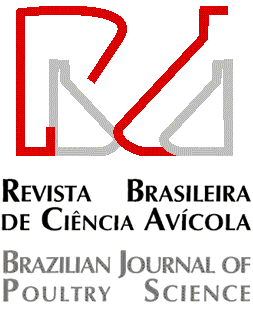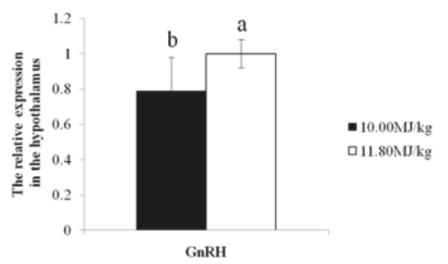ABSTRACT
The objective of the study was to investigate the mechanism by which dietary energy concentration regulates laying performance in geese. Eighty 558-day-old female Sichuan White geese were randomly allotted to two dietary treatments, each treatment was fed 1 of 2 experimental diets containing 10.00 (deficient) or 11.80MJ/kg metabolizable energy (sufficient) for 30 days. Laying performance, hormone concentration and gene expressions in hypothalamus-pituitary-gonadal axis were examined in geese. Birds fed the sufficient-energy diet had significantly higher average egg weight, daily laying rate, and lower feed to egg ratio than those fed the deficient-energy (p<0.05). The birds fed sufficient-energy diet had higher concentration of serum insulin like growth factor 1 (IGF-1), gonadotropin-releasing hormone (GnRH), follicle-stimulating hormone (FSH) and estradiol (E2) than those in deficient-energy diet (p<0.05). The mRNA expression levels of GnRH in the hypothalamus, FSH in the pituitary and E2 in the ovary of birds fed sufficient-energy diet were higher than the corresponding counterpart in deficient-energy diet (p<0.05), respectively. In conclusion, the study implied that dietary energy modifies laying possibly through regulating reproductive hormone secretion and gene expression in hypothalamus-pituitary-gonad axis in laying geese.
Keywords:
Energy concentration; laying geese; reproductive hormone; gene expression



